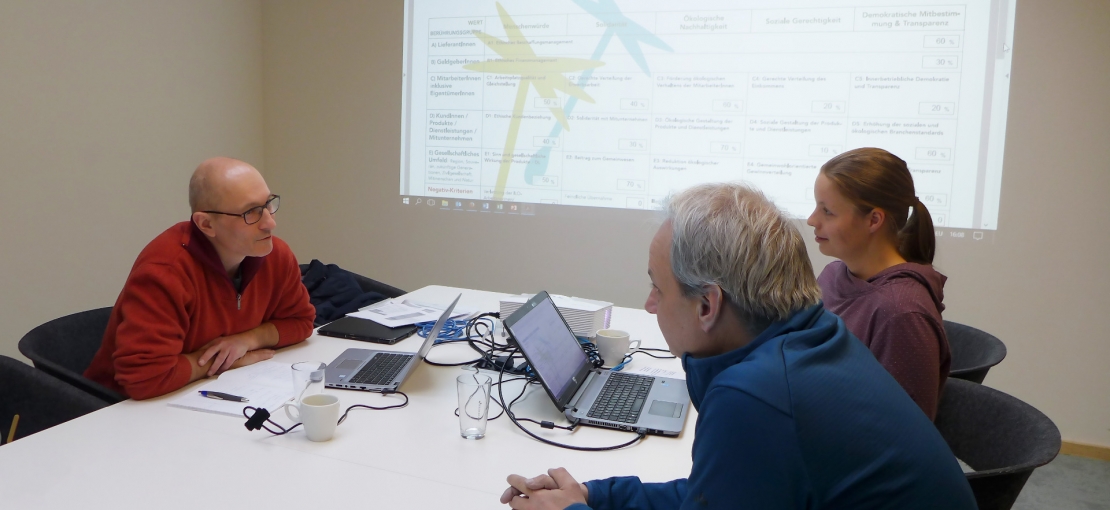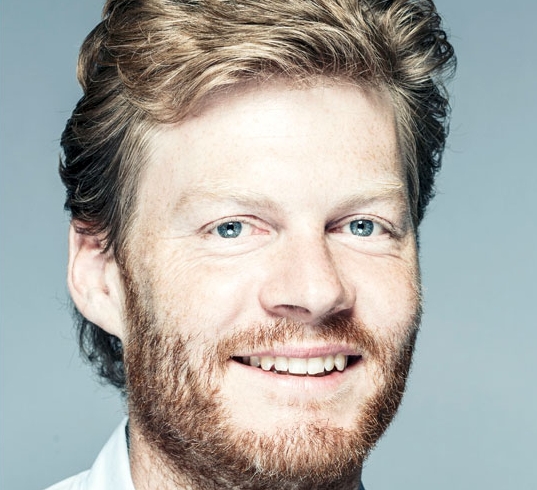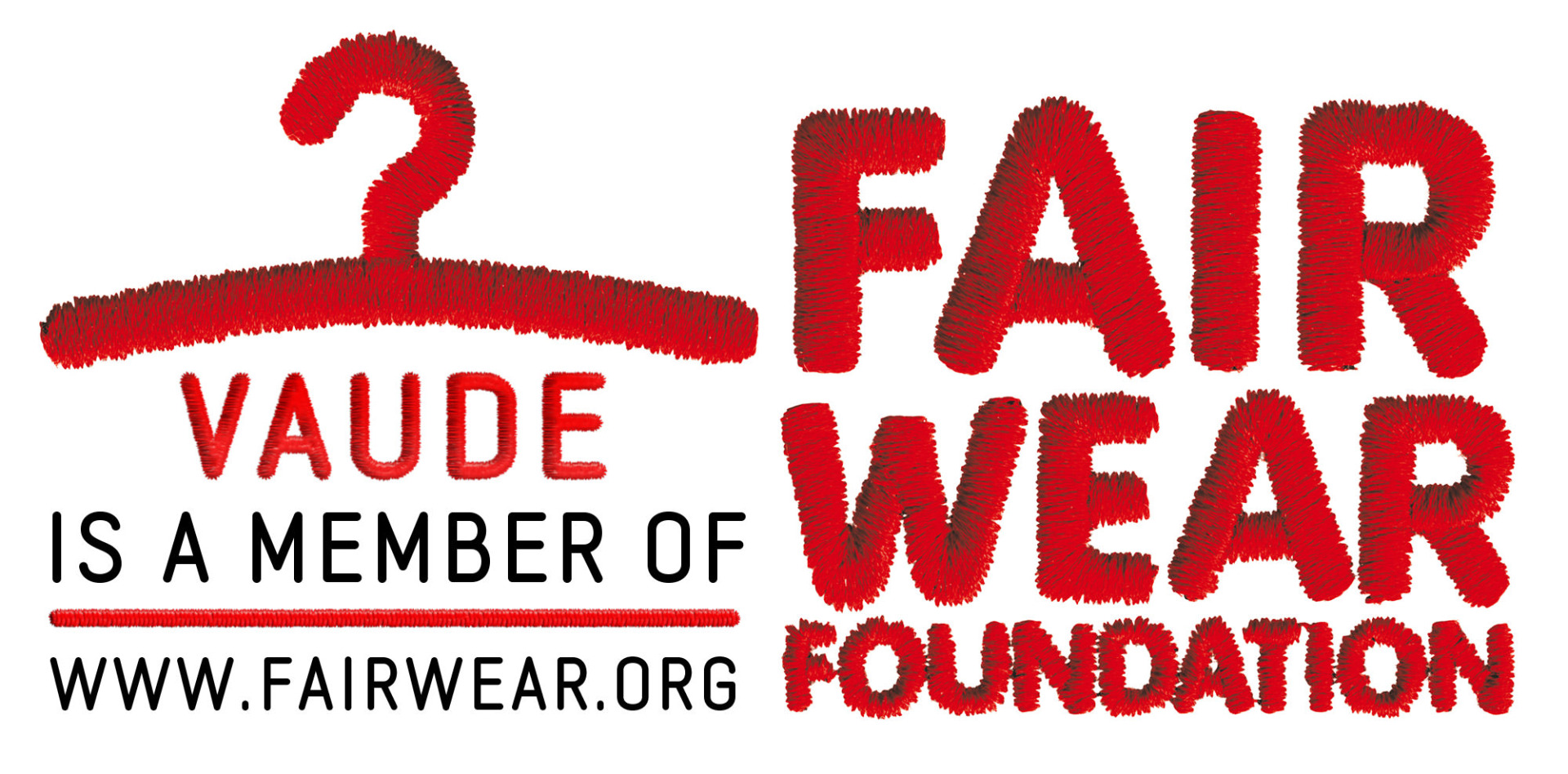
VAUDE manages it with success: business practices for the benefit of all
Second Economy for the Common Good Balance Sheet published
And this it does with great economic success: VAUDE has continued to experience above average growth in the highly competitive outdoor industry. Now, for the second time, the family-owned company has published an audited Economy for the Common Good Balance Sheet, which assesses ecological and social factors in addition to economic factors. Despite the ECG’s stricter requirements, VAUDE was able to improve significantly compared to its previous Balance Sheet (2013).

»With this second Balance Sheet, VAUDE is demonstrating its continuous focus on a value-based strategy in a wide range of fields. This is exemplary, especially in light of the textile industry’s ongoing practice of the maxim ‘cheap, careless and short-living fashion trends’.«
Together with ECG founder Christian Felber, she has already been invited to Brussels by the European Economic and Social Committee as an official ECG ambassador to present the alternative business model.
Alternative Business Model

»Our economic system is going in the wrong direction. Companies should not only be evaluated based on their financial success. They should also be measured by the extent to which they take responsibility for people and the environment and take into account the true costs of their products. If this happened, global challenges such as global warming would take on a completely different significance in our world.«
VAUDE achieves a high rating
VAUDE was evaluated in accordance with the new standard 5.0, revised by the ECG, which now applies even more comprehensive and rigorous standards. On a scale of -3,600 to +1,000, the company achieved a balance sheet total of 631 points – a high rating for a commercial enterprise.

»VAUDE can therefore rightly be described as a model company in terms of embodying the essence of the Economy for the Common Good. Overall, VAUDE achieved high results – even better than those for its preliminary report, despite adjusting to the new, more rigorous ECG Matrix 5.0.«
High praise for its commitment to the global supply chain
VAUDE achieved notably positive balance sheet ratings in all aspects of the supply chain. The company’s "exemplary supplier management with strict ecological and social criteria and a review by external auditors, despite VAUDE’s lower level of market power," was emphasized in the ECG report. With the aim of ensuring high ecological and social standards throughout the supply chain, VAUDE has done a great deal of work in this area – voluntarily and far beyond the legal requirements.

With the Green Shape label, VAUDE offers environmentally friendly products made from sustainable materials and with fair production methods. In the current Apparel Collection, the percentage of Green Shape products is already over 90 %. In order to ensure higher ecological and social standards for material suppliers, VAUDE has trained its Asian suppliers in the areas of environmental protection, energy and pollutant management as well as social standards as part of a pilot project. Numerous improvement measures were initiated as a result of this project, which led to a reduction in CO2 emissions of approximately 5,000 tons per year.

As a member of the Fair Wear Foundation (FWF), VAUDE has been committed to fair working conditions in its production facilities since 2010. In the last FWF audit, VAUDE achieved the best rating of all member companies and underscored its position as a "Leader". In a joint project with other outdoor brands, VAUDE has launched a training initiative to improve working conditions in its production facilities in Myanmar and received the Best Practice Award of the Fair Wear Foundation.
The Economy for the Common Good Balance Sheet
The Common Good Balance Sheet measures entrepreneurial success not only in terms of financial gain, but also in terms of its contribution to the common good. This includes human dignity, solidarity, ecological sustainability, social justice, democratic participation and transparency.
The objective is a verifiable and credible assessment of a company’s position in relation to the common good. Unlike other sustainability standards such as the GRI or EMAS, and ECG Balance Sheet not only provides transparency through all areas of corporate social responsibility, but is also a qualitative and quantitative assessment.
The Balance Sheet results are published. This makes it possible to clearly identify, measure and compare the contribution that the company makes to the common good.






